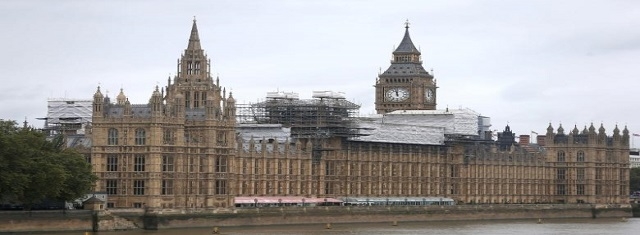News
Britain should back large-scale energy storage - parliamentary committee
GLOBAL ENERGY NEWS

Part of the Houses of Parliament, in Westminster
USPA NEWS -
Britain should support large-scale electricity storage schemes to help make intermittent renewable energy sources such as wind and solar power available around the clock, a parliamentary committee report said on Saturday.
"Energy storage is vital in building a clean electricity system ... It will mean we won't have to wait for the sun to shine or the wind to blow to get our energy from renewables," said Angus MacNeil, chair of the cross-party Energy and Climate Change Committee.
It was the committee's last report ahead of its dissolution on Monday as part of a departmental merger that will create the Department for Business, Energy and Industrial Strategy.
The report calls for incentive schemes to be redesigned to foster storage schemes and also to establish electricity demand reduction programmes, which could cut utility bills and carbon emissions as well as boost the energy system's efficiency.
It was the committee's last report ahead of its dissolution on Monday as part of a departmental merger that will create the Department for Business, Energy and Industrial Strategy.
The report calls for incentive schemes to be redesigned to foster storage schemes and also to establish electricity demand reduction programmes, which could cut utility bills and carbon emissions as well as boost the energy system's efficiency.
The committee report said that in both cases current government incentives were skewed to supporting polluting fossil fuel power plants such as diesel.
The committee recommended the government publicly commit to turning the United Kingdom into a world leader in power storage, as well as setting a storage target for 2020.
Consumers could benefit from about 7 billion pounds ($8.7 billion) a year from large-scale storage schemes, MacNeil said.
The committee recommended the government publicly commit to turning the United Kingdom into a world leader in power storage, as well as setting a storage target for 2020.
Consumers could benefit from about 7 billion pounds ($8.7 billion) a year from large-scale storage schemes, MacNeil said.
"The market should be given a clear signal that demand side response capacity is a strongly preferred alternative," the report said.
Regarding Britain's planned exit from the European Union, the committee urged the government to maintain close involvement with the EU's "solidarity principle" in which member states receive help in the event of a gas supply crisis.
($1 = 0.8042 pounds)
Regarding Britain's planned exit from the European Union, the committee urged the government to maintain close involvement with the EU's "solidarity principle" in which member states receive help in the event of a gas supply crisis.
($1 = 0.8042 pounds)
Liability for this article lies with the author, who also holds the copyright. Editorial content from USPA may be quoted on other websites as long as the quote comprises no more than 5% of the entire text, is marked as such and the source is named (via hyperlink).





